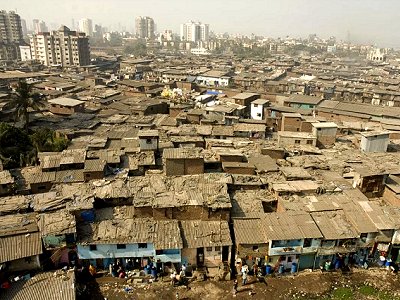
THE LEVELLING SPIRIT
Have we become too relaxed about wealth differentials within both Church and society?
The re-appearance of Gordon Gekko on our screens in Wall Street 2 has stirred memories of a time allegedly defined by his mantra ‘greed is good’. It may be unfair to a decade which generously spawned Live Aid and a new perspective on global development which is now embedded in national policy, but we are generally too lazy to make such distinctions. For many people the 1980s were an uncouth era of loadsamoney.
Since then, equality of outcome has receded as a goal of public policy to be eclipsed by equality of opportunity. This meritocratic outlook has many supporters across the political spectrum but we are a long way from delivering it properly when wealth and connections are so unevenly distributed across society. Labour markets require pay differentials to indicate need and reward effort. This much is unexceptional. However, studies show that Anglo-Saxon countries are markedly more unequal than others and also more tolerant of that state of affairs. We have, for example, a permissive attitude to company pay structures that reward chief executives with vastly greater incomes than those who work under them but who also contribute tangible value to the firm.
Patient and exhaustive research by epidemiologists Richard Wilkinson and Kate Pickett into levels of inequality in some of the world’s richest countries has shown how issues like mental and physical health, obesity, educational achievement, violence, life expectancy, rates of imprisonment and social mobility are each adversely affected where societies are materially more unequal than elsewhere. This may not surprise us, but the evidence which shows greater inequality to be bad for everyone, both rich and poor, is more telling because those of us who are rich have tended to belief – even if we do not articulate it – that our wealth cushions us from many of the adversities others must face. Once again, the illusion of personal independence deceives us into thinking we do not stand and fall with the community around us.
The findings contained in The Spirit Level referred to above pose a challenge to us, not least in a Christian community which espouses radical personal equality in bread and wine. Do we tolerate too much inequality within? The parable of the talents is sometimes used misleadingly to suggest there is divine sanction for people who possess vastly more than others. More pertinently, the parable encourages us to put our gifts to productive use in service of others: the greater the gifting, the deeper the obligation. One reason the concept of service in public life has diminished in our lifetime is because the gifts God has given us have been interpreted as possessions we are worthy of and cut loose from the moorings of social responsibility. What is true of gifting is true of wealth too. It becomes either a guillotine that severs us or glue that binds us to others.
Saint Luke addresses the inequalities of this unjust world in his Gospel with searching and inspired vision. The first shall be last and the last first in the great eschatological reversal. We read and sing this with sincerity but perhaps like children singing adult songs, do not quite grasp its significance. One day of God’s choosing he will shake the world until the pieces are reassembled. When they are, we will surely be in for a shock.
POPULAR ARTICLES

Obama's Covert Wars
The use of drones is going to change warfare out of all recognition in the next decades.

Through A Glass Starkly
Images of traumatic incidents caught on mobile phone can be put to remarkable effect.

What Are British Values?
Is there a British identity and if so, what has shaped the values and institutions that form it?


